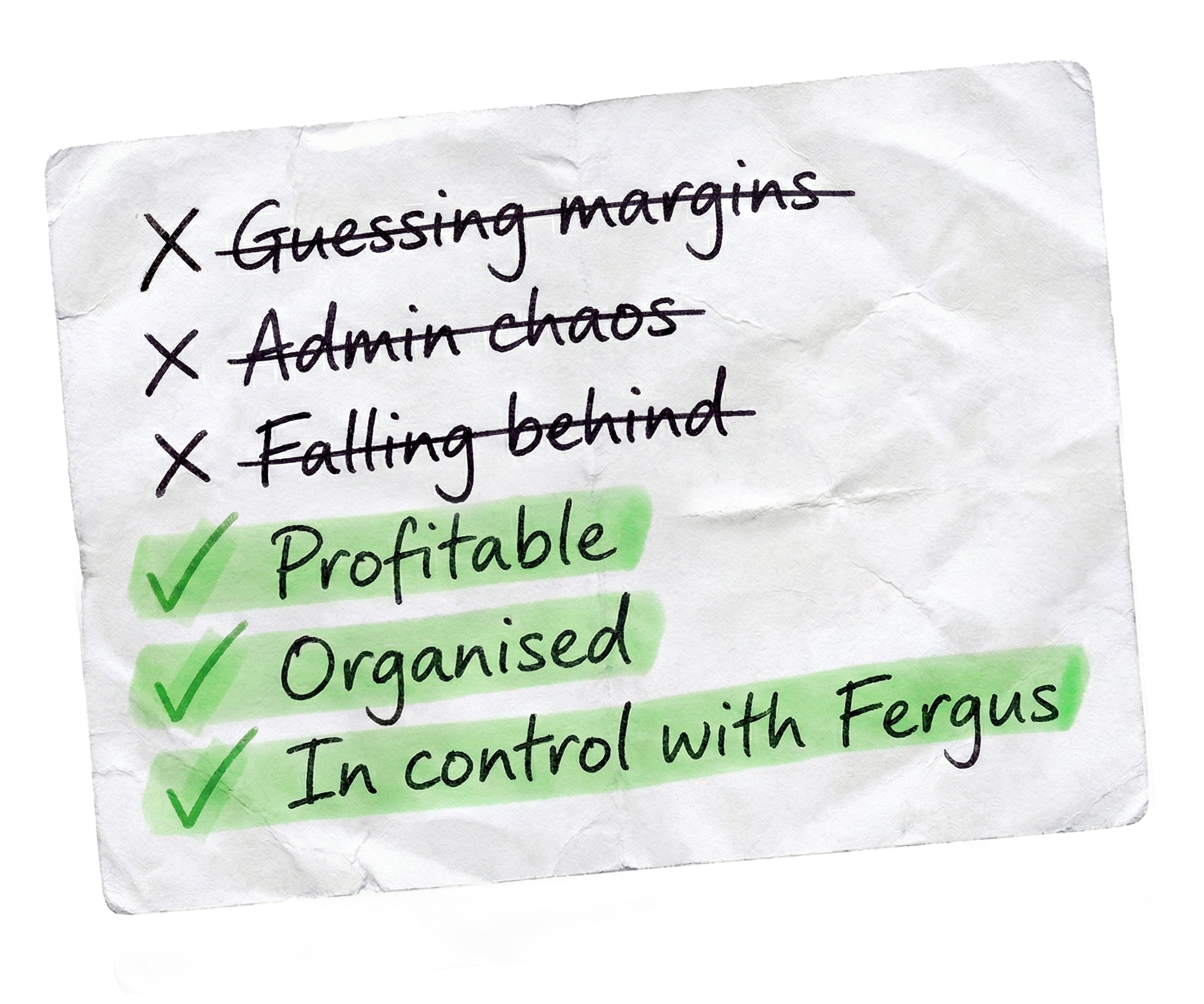
Effective diary management for tradespeople means getting organised, which is the only way to maintain a successful business.
You might be hitting a purple patch in your trades business, booking up your diary regularly with new jobs coming in.
And that’s great. Well done to you!
But without organisation, things are going to quickly become difficult to manage.
Believe us, we help over 20,000 tradespeople in the UK to get organised, and have seen the same thing happen time and time again.
That’s why, whether you’re an electrician, plumber, or in any other skilled trade, getting to grips with your schedule helps you to take control of your business, allowing you to:
In this article, we’ll talk through practical tips and techniques that will help you deal with busy periods (while keeping your sanity intact).
Before we dive into diary management strategies, let’s address the elephant in the room: the shortage of skilled tradespeople.
According to research by Kingfisher, the UK is currently facing a shortage of 166,000 tradespeople, with vacancy levels reaching record highs.
This problem is only widening, as by 2030, this shortfall is projected to grow to 250,000 tradespeople.
Why is this happening?
Well, factors include a demand for home improvements (such as energy-efficient installations) and an aging workforce, with less young people learning a trade.
As a tradesman, if your phone is buzzing with requests, you’re on the right track.
You’re in the flow, and when you started your trades business, this is what you hoped for.
So all of your problems are now solved, right?
Not exactly!
As the reputation of your trades business grows, so does the level of expectation. The problem is that juggling multiple projects can lead to longer waiting times for customers.
This is where balancing existing commitments with new requests becomes crucial, as misunderstandings or missed details can lead to customer dissatisfaction.
Managing a busy schedule can disrupt your work/life balance, as you might find yourself working long hours, especially during peak seasons.
It’s important to know that stress, anxiety, and burnout are common, so finding a balance becomes crucial to avoid mental health issues.
You’ve also got to consider maintaining standards, cash flow management, long hours, staff management and resource management.
To put it all simply, even success can be overwhelming, if you don’t manage it properly.
But how exactly do you put effective diary management in place in your trades business?
Well, here’s some tips to help you out:
Divide your tasks into categories such as installations, repairs, maintenance, and administrative work.
That way, you can prioritise urgent jobs and allocate time accordingly.
Don’t forget to keep slots available for emergency calls.
These unexpected situations can disrupt your schedule, so having that added bit of flexibility is essential to avoid burnout.
Don’t try and push your admin to the back of your mind.
Make sure you allocate specific time blocks for administrative tasks like invoicing, quoting, and reporting. If you try and juggle admin with client appointments, you’ll soon find yourself drowning in paperwork.
Remember that customer service is also part of your job as a tradesperson.
That’s why you should also dedicate time to respond to emails, calls, and messages.
Clear communication is essential for client satisfaction.
Factor in travel time between jobs, as well as any preparation time you need.
You don’t want to be rushing from one site to another, as that can quickly lead to stress and errors.
It can be tough to do when you’re chasing the money, but also include some time in case of unforeseen delays.
How many times have jobs dragged on longer than expected, or you’ve been sat in traffic?
Do what you can to take that stress off your plate – which brings us to our next tip.
While it’s tempting to take on every job, be realistic about your capacity, as overcommitting can lead to burnout and compromised quality.
Be honest with yourself, and politely decline requests that don’t align with your availability.
Remember that saying no allows you to serve your existing clients better.
As you get busier, your network becomes more and more important.
Now is the time to build on your relationships with other tradespeople in your area, and see if there’s a way you can help each other out.
You may be able to collaborate on larger projects or refer clients to each other when necessary.
If you do this, you may be able to reduce costs by sharing tools or equipment with trusted colleagues.
If the message isn’t already clear, we’re happy to repeat ourselves…
Don’t neglect your well-being.
Regular breaks and adequate sleep are essential for maintaining focus and preventing burnout.
If you have a team, delegate tasks appropriately. Trust your team members to handle certain responsibilities.
Invest in a reliable job scheduling app. Sync it across devices to access your diary anytime, anywhere.
That way, you can set reminders for appointments, deadlines, and follow-ups.
This minimises the risk of forgetting important tasks.
Using Fergus keeps everything easy to manage, all in one place, with all job notes, detail, and history easy to access – leaving you with no paperwork required.
You can quickly schedule jobs, send quotes and invoices, manage staff members, and track where everything is up to, all in a matter of seconds.
So, if you’re not already using job management software for your trades business, the question is…
What are you waiting for?
Stop drowning in admin & paperwork. Start focusing on the jobs that make you money.



Our 20,000+ trades businesses have slashed their admin, are getting paid faster, and are finally enjoying their weekends again.






